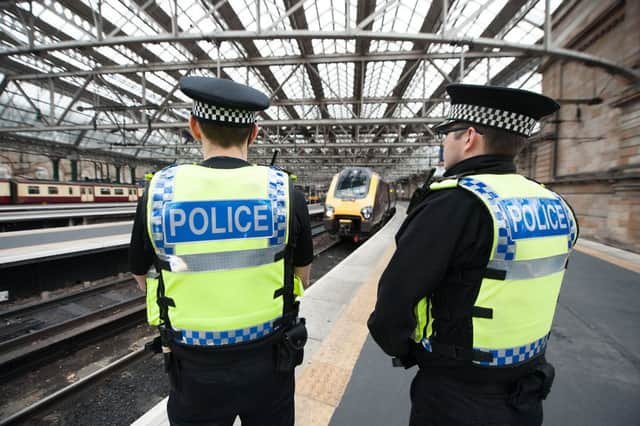Chris Marshall: Very few good reasons for integration of railway policing


Indeed so uncontentious was the proposal that it won cross-party support at Holyrood.
But that was before the Scottish Government announced its intention of integrating British Transport Police (BTP) into Police Scotland.
Advertisement
Hide AdAdvertisement
Hide AdYesterday, Holyrood’s justice committee held a round-table discussion of the proposal with input from the BTP, Police Scotland, the Scottish Police Authority and the federation representing BTP officers.
What the discussion really needed, however, was input from the Scottish Government because while there was plenty of evidence as to why the proposal is a bad idea, there was scant to recommend it.
The Scottish Government has wanted to integrate BTP into Police Scotland for some time.
In 2011, then justice secretary Kenny MacAskill wrote to UK Transport Secretary Philip Hammond offering to make railway policing part of Police Scotland.
What is not clear is why the Scottish Government seems so determined.
Under the current model, railway policing is paid for by rail operating companies.
Appearing before MSPs yesterday, Adrian Hanstock, deputy chief constable of BTP, said the current model allowed for a police force which could minimise disruption across the network and work seamlessly across borders.
Mr Hanstock warned that subsuming railway policing into Police Scotland would leave the national force with the prospect of picking up the bill when English BTP officers were required north of the Border.
Advertisement
Hide AdAdvertisement
Hide AdHe also suggested that the importance of railway policing would inevitably fall down the list of priorities of a national police force dealing with all types of crime.
Nigel Goodband, chairman of the BTP Federation, echoed those concerns, saying the merger would lead to a “dilution” of the service offered to the travelling public.
He also suggested there would be a loss of expertise as BTP officers would choose to leave the organisation rather than work for Police Scotland.
The task of defending the move fell to Police Scotland and the Association of Scottish Police Superintendents (ASPS).
Representing Police Scotland, Assistant Chief Constable Bernie Higgins did his best to put a brave face on things, saying any problems would not be “insurmountable”.
But he also conceded the task of integration would be “massively complicated” and said railway officers would be needed elsewhere in the country in “times of crisis”.
It seems that not only is there a lack of sound arguments for the merger, but that it could also bring extra pressure for Police Scotland.
The force is still struggling to come to terms with the merger of Scotland’s eight legacy police forces in 2013, and throwing railway policing into the mix at this stage seems masochistic.
Advertisement
Hide AdAdvertisement
Hide AdThe Scottish Government has already announced its intention to bring forward the Railway Policing Bill, the legislation which will allow the merger to take place.
But there has been little in the way of detail about how the plans will take shape.
On yesterday’s evidence, there is still work to be done to convince not only the travelling public, but also the police that it is a viable prospect.